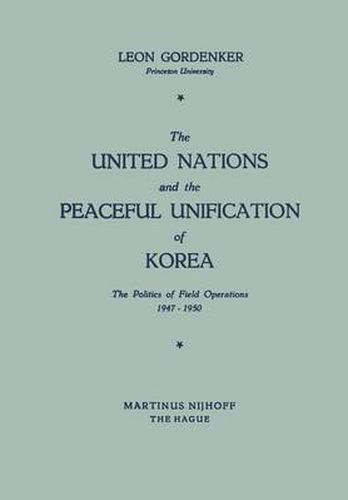Readings Newsletter
Become a Readings Member to make your shopping experience even easier.
Sign in or sign up for free!
You’re not far away from qualifying for FREE standard shipping within Australia
You’ve qualified for FREE standard shipping within Australia
The cart is loading…






This title is printed to order. This book may have been self-published. If so, we cannot guarantee the quality of the content. In the main most books will have gone through the editing process however some may not. We therefore suggest that you be aware of this before ordering this book. If in doubt check either the author or publisher’s details as we are unable to accept any returns unless they are faulty. Please contact us if you have any questions.
Where there has been fighting or the threat of fighting since the end of the Second World War, the United Nations has ahnost al ways been involved. Frequently that involvement has taken the concrete form of a field commission or a team of observers, made up of nationals of several countries and reporting to the General Assembly or the Security Council. Even while I write this, military observers wearing special United Nations insignia are patrolling the border areas of Syria and Lebanon. Meanwhile, observation groups with a longer history are on duty in Kashmir and along the Israeli borders. A field commission of the United Nations still remains in Korea, and others had been at work in Greece, Eritrea, Somalia and on the Hungarian border. All of them lived, worked and reported in an atmosphere of controversy. Perhaps none could have claimed that their work ended in full success. Their existence, however, suggests that the United Nations has developed a special political instrument for use in troubled areas where solutions are elusive but where danger of a spreading con flict is never distant. This study deals with the work of field com missions of the United Nations in Korea before the violence of 1950. Their work, whatever its merit, came crashing down with the North Korean attack.
$9.00 standard shipping within Australia
FREE standard shipping within Australia for orders over $100.00
Express & International shipping calculated at checkout
Stock availability can be subject to change without notice. We recommend calling the shop or contacting our online team to check availability of low stock items. Please see our Shopping Online page for more details.
This title is printed to order. This book may have been self-published. If so, we cannot guarantee the quality of the content. In the main most books will have gone through the editing process however some may not. We therefore suggest that you be aware of this before ordering this book. If in doubt check either the author or publisher’s details as we are unable to accept any returns unless they are faulty. Please contact us if you have any questions.
Where there has been fighting or the threat of fighting since the end of the Second World War, the United Nations has ahnost al ways been involved. Frequently that involvement has taken the concrete form of a field commission or a team of observers, made up of nationals of several countries and reporting to the General Assembly or the Security Council. Even while I write this, military observers wearing special United Nations insignia are patrolling the border areas of Syria and Lebanon. Meanwhile, observation groups with a longer history are on duty in Kashmir and along the Israeli borders. A field commission of the United Nations still remains in Korea, and others had been at work in Greece, Eritrea, Somalia and on the Hungarian border. All of them lived, worked and reported in an atmosphere of controversy. Perhaps none could have claimed that their work ended in full success. Their existence, however, suggests that the United Nations has developed a special political instrument for use in troubled areas where solutions are elusive but where danger of a spreading con flict is never distant. This study deals with the work of field com missions of the United Nations in Korea before the violence of 1950. Their work, whatever its merit, came crashing down with the North Korean attack.